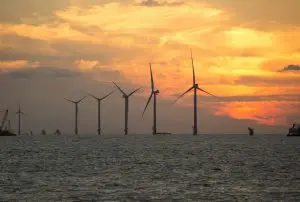Energy from waste can help to address two of the Government’s complimentary objectives: clean growth and the circular economy. It could therefore prove to be a profitable and worthy focus for investors in UK PLC. However, to fully maximise the opportunity, companies need to make sure future policy is well informed. Failure to engage with policymakers could see the waste of a prime opportunity to receive greater support.
Government has highlighted the role of waste as an energy resource.
The UK Government is committed to using energy policy to reduce carbon emissions, which provides an opportunity for energy from waste. The Government’s Clean Growth Strategy re-iterated the UK’s commitment to reducing greenhouse gas emissions by 80 per cent from 1990 levels. [1] In the document, the Government highlighted how anaerobic waste, which can reduce emissions, is being used to help meet this target. It mentioned the fact that waste helped to generate 14 per cent of UK electricity in 2015, enough to power 2.3 million homes. [2] The strategy also pledged further action to help the UK become a Zero Avoidable Waste economy by 2050. [3] This suggests that companies seeking to produce energy from waste may be able to secure further political support.
Action to support anaerobic digestion is being advocated at local level.
While central government develops its ideas, action is already being taken to support energy from waste at local level. Last week the London Assembly published a report on the capital’s waste resources. This highlighted the benefits of anaerobic digestion and associated biogas. [4] The report explicitly recommended that: ‘The Mayor should facilitate the use and, if necessary, the construction of Anaerobic Digestion facilities.’[5] Companies that are aware of developments at a devolved level may be able to capitalise on them, alongside and independent of signals from Westminster and Whitehall.
Bans on waste imports abroad will necessitate new solutions in the UK. ON WASTE IMPORTS ABROAD WILL NECESSITATE NEW SOLUTIONS IN THE UK
The UK will be forced to process more of its waste domestically as China has issued new restrictions on waste imports. There is speculation other countries could bring in similar restrictions. [6] The Government, realising the scale of this issue, is publishing its Resources and Waste Strategy later this year. This increased awareness is fuelling support for alternatives to landfill including repurposing, recycling and energy from waste. By engaging with this debate, and the Government as it develops its Resources and Waste Strategy, companies could maximise support for electrification and gasification from waste. Thereby increasing the potential profitability of the UK as a market for energy from waste.
[1] HM Government, The Clean Growth Strategy: leading the way to a low carbon future, October 2017, p.5, link.
[2] HM Government, The Clean Growth Strategy: leading the way to a low carbon future, October 2017, p.102, link.
[3] HM Government, The Clean Growth Strategy: leading the way to a low carbon future, October 2017, p.108, link.
[4] London Assembly, Wasting London’s Future, 21 March 2018, p.19 & p.28, link.
[5] London Assembly, Wasting London’s Future, 21 March 2018, p.25, link.
[6] Politico, China’s trash ban forces Europe to confront its waste problem, 21 February 2018, link.




